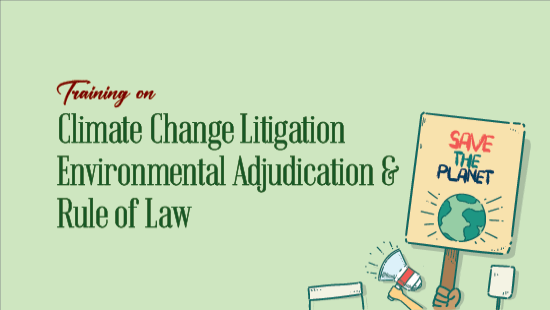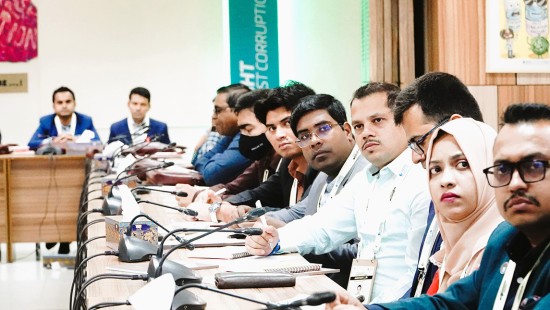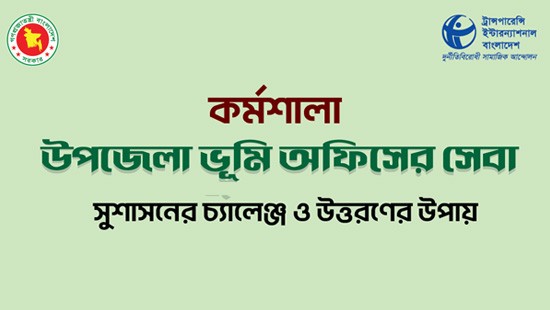Published: 01 November 2024
"When I called the number listed on the Dhaka North City Corporation's website, I was surprised to hear a man's voice," recalls Ibrahim Munshi, a young activist. "He told me his son was actually doing the waste collection work, not the woman listed on the official website." This simple phone call revealed the deep-rooted inconsistencies troubling Bangladesh's urban waste management system – and why the country's youth are determined to change it.
To mark the World Cities Day 2024, Transparency International Bangladesh (TIB) organized a workshop on October 31 with 37 college and university students from its Youth Engagement and Support (YES) groups from 11 cities focused on "Youth Climate Changemakers: Catalyzing Local Action for Urban Sustainability”. The event aimed to boost youth participation in urban governance and develop ideas for better waste management.
From Textbooks to Technology: A Fresh Perspective
TIB organized Youth IDEA Contest 2024 in the same month and from that contest, Ms. Sanu Akter and Mr. Sohanur Rahman also attended this workshop and shared their concept for converting solid waste to renewable energy. Sohanur Rahman, one of the young leaders at the forefront of this movement, believes change must start at home – literally. "We need to reward households and businesses that properly manage their waste," he argues. "But more importantly, we need to educate our children through school curricula about waste management. They're the ones who will carry these practices forward." Sanu Akter's team took a unique approach, using a "tree model" to dig deep into the roots of ineffective waste management. Regular public meetings between city corporations and citizens. "People need a voice," Akter explains. "They need to be heard when services fail them."
In Khulna, Khadijatul Kubra has witnessed firsthand how informal waste collectors struggle with minimal pay. "These workers are the backbone of our waste management system," she says, "yet they operate in the shadows of informality." The youth participants aren't just identifying problems – they're leveraging technology to solve them. Their proposals include a mobile app that would allow citizens to request waste collection services directly from city authorities, and the use of social media platforms to engage the public in city planning.
Confronting Corruption
The young activists didn't shy away from addressing sensitive issues. They spoke openly about the systemic corruption and political influence they've observed in procurement and recruitment processes. Their message was clear - the rule of law must apply equally to everyone, regardless of political connections.
"Good Governance in Urban Waste Management: Voices from Youth" the workshop began with opening remarks from Prof. Sumaiya Khair, Advisor to the Executive Management Team at TIB, and Ms. Ferhana Ferdous, Director of Civic Engagement at TIB. Dr. Nabil Haque, Coordinator of Environment and Climate Finance at TIB, discussed solid waste management's connection to good governance, followed by Mr. Saief Manzoor-Al-Islam, Deputy Team Leader of GO4IMPact at WaterAid Bangladesh, who presented on Bangladesh's waste management challenges.
A Movement Gains Momentum
Dr. Iftekharuzzaman, Executive Director of TIB, was visibly moved by the young participants' commitment. "What inspires me most is their understanding that effective waste management is everyone's responsibility – both government and citizens," he noted. "This realization is the foundation for real change."
Looking Ahead
As these young climate changemakers return to their respective cities – from Dhaka to Chittagong, from Sylhet to Khulna – they carry with them not just ideas, but a renewed sense of purpose. Their proposals, ranging from digital solutions to educational reforms, represent a fresh approach to an old problem.
In the words of one participant, "We're not just talking about waste management – we're talking about the future of our cities, our environment, and our country. And we're ready to lead that change."
The workshop may have ended, but for these 37 young activists, it marks just the beginning of their journey to transform Bangladesh's urban waste management system. Through their efforts, they're proving that when it comes to environmental challenges, youth aren't just stakeholders – they're solutions providers.














